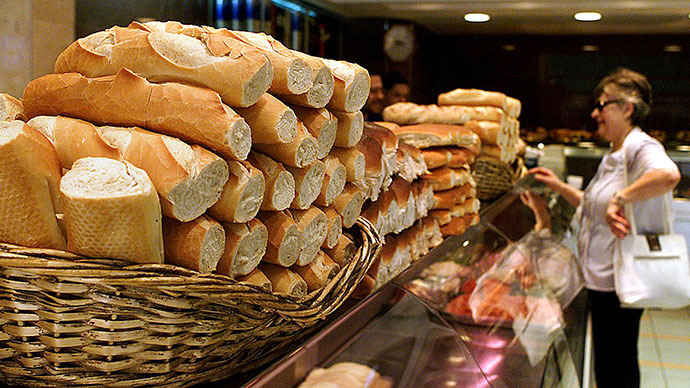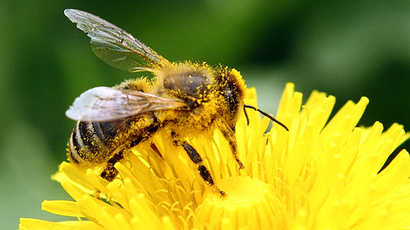Loaf-threatening: More than half of British breads contain ‘toxic’ pesticides

Over 60 percent of breads in the UK contain pesticide residues, according to recently conducted analysis of government data. A further 25 percent contain traces of multiple toxins, the research reveals.
“There is the possibility of harm from the repeated ingestion of low doses of pesticides and no one has done research on the impact of the cocktails of pesticides we are all exposed to. We are all being experimented on without our consent,” Nick Mole from Pesticide Action Network (PAN UK) who authored the report tells the Guardian.
PAN UK’s research examines data generated by the Department for Environment, Food & Rural Affairs’ (DEFRA) expert committee on pesticide residues in food (PRIF).
DEPFRA’s tests indicate residue levels detected in Britain’s bread fall shy of the “maximum residue level” (MRL): the “highest amount of pesticides expected in food” if they are administered correctly to crops. Following the government-sanctioned tests, PRIF experts stated they “did not expect these residues to have an effect on health.”
But Nick Mole contradicts DEPFRA’s view. MRLs are not an accurate means of assessing the cumulative impact of pesticides on human health, he cautions. Rather, they indicate whether pesticides have been applied to plants and crops in the permitted amounts.
Published on Wednesday, PAN UK’s report raises serious concerns about pesticide residues in the nation’s daily bread - as well as their implications for human health. Mole’s research reveals the number of bread samples testing positive for multiple pesticide residues has more than doubled since 2007.
‘We’re being poisoned against our will’
The most frequently occurring pesticides in British loaves are glyphosate and chlormequat, according to PAN UK’s findings. Glysophate has been linked to “cancer, birth defects, and neurological disease such as Parkinson’s,” the environmental organization warns. The Netherlands aims to ban certain uses of the chemical from 2015, while Brazil’s government is also considering banning it as a result of its alleged links to kidney disease.
Chlormequat, the second most-commonly found pesticide in British bread, regulates plant growth. A study conducted by the UN’s Food and Agriculture Organization (FAO) found Chlormequat is linked to developmental toxicity in animals. Insufficient scientific research has been carried out on its effects on humans, however.
“The presence of pesticide residues in our food and our subsequent ingestion of them is not something that anybody should welcome. We are in effect being poisoned against our will with the full knowledge of the growers, retailers and regulatory bodies that provide our food or are tasked with making sure it is safe,” Mole stated following the release of Pan UK’s research.
“The report shows that pesticides residues in non-organic bread have doubled from 2001-2013 and this along with recent reports linking pesticides with damage to wildlife including bees, is extremely worrying and needs to be addressed,” Catherine Fookes, campaign manager for the ‘Organic Naturally Different’ campaign commented on the research.
Mole’s research suggests the consumption of organic bread “significantly reduces” consumers’ exposure to pesticide residues. But in an era of zero contract hours, soaring income disparity and a stubbornly high cost of living such luxury goods remain firmly beyond many Britons’ grasp.
PAN UK has called upon the UK government and food industry to take urgent action to reduce pesticide residues in the nation’s bread. Whether the environmental advocacy organization's findings will impact on UK policy remains to be seen.














